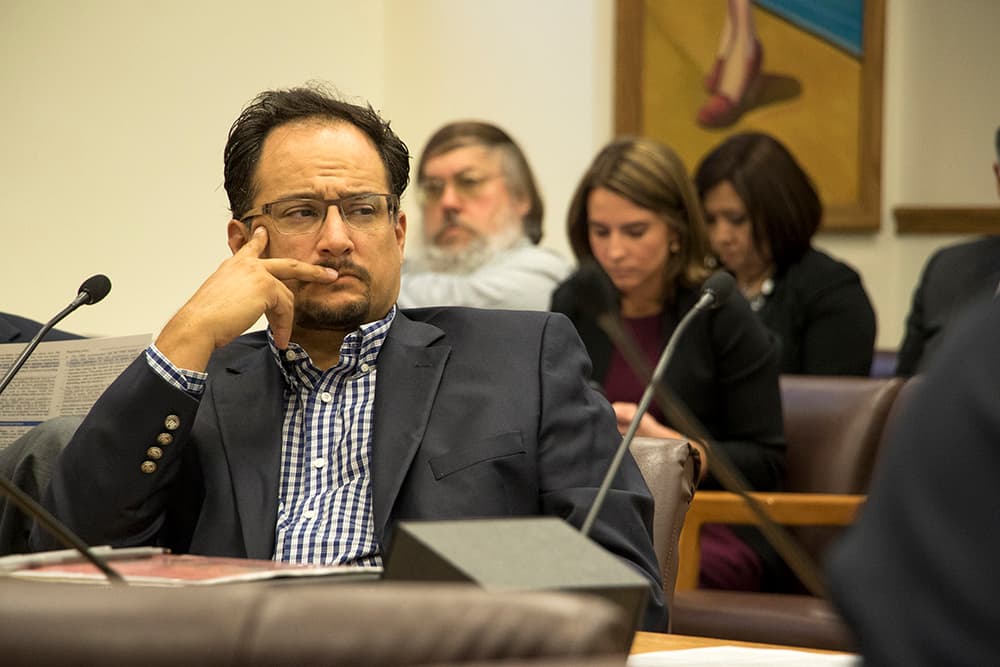Denver City Councilman Rafael Espinoza, who represents northwest Denver, announced in a press release this morning that he will be suspending his re-election campaign.
The first-term councilman will leave the legislative side of politics for the advocacy side, according the statement from his council office, citing concern "that the pace of legislative change cannot match the speed of profit-driven, poorly-conceived development."
Denverite spoke briefly with the lawmaker today, who said he would comment later this morning after meeting with a constituent and his staff.
Espinoza's exit leaves a clearer path for those who've already announced campaigns -- Denver Immigrant and Refugee Commission chair Victoria Aguilar, North High School restorative justice coordinator Raven Porteous, political veteran and renters' advocate David Sabados and Denver Fire Department Lieutenant Michael Somma -- and any others who might join in before the May 2019 election.
Behind the dais for the last three-plus years, Espinoza has been a bit of a black sheep who sometimes diverged from his colleagues, particularly when it came to development and growth issues.
An architect by training, he was behind banning much-maligned "garden court" homes and "slot homes" because of an unpopular aesthetic and clunky design. The move has the effect of curbing density a bit and scaling down neighborhood development. He helped create an "urban town home" context in the zoning code as an alternative.
"When I was asked to run for office, I was hopeful that you would give me the opportunity to represent you and the rest of our community on City Council," Espinoza said in a statement. "I told you that I would not be beholden to developers, special interests, the mayor's office, or even fellow council members."
More recently, he worked with City Councilman Albus Brooks on the regulations that will transform the downtown-adjacent sea of parking lots that eventually will be known as the River Mile district.
Espinoza was also a force behind a change to the zoning code that required developers to build parking where it was not required before on certain small lots, sparked by a developer's 100-unit apartment building in Capitol Hill without parking. Critics argued that expensive, government-mandated parking will sap home-building in a city with a housing shortage, and that developers will pass the cost onto tenants, making housing less affordable. Supporters wanted the ability to park on public streets near to or in front of their homes.
Espinoza is also an adamant opponent of the I-70 expansion, and derided the previous council's decision to approve taxpayer funds for the project.
This is a breaking story and will be updated.














